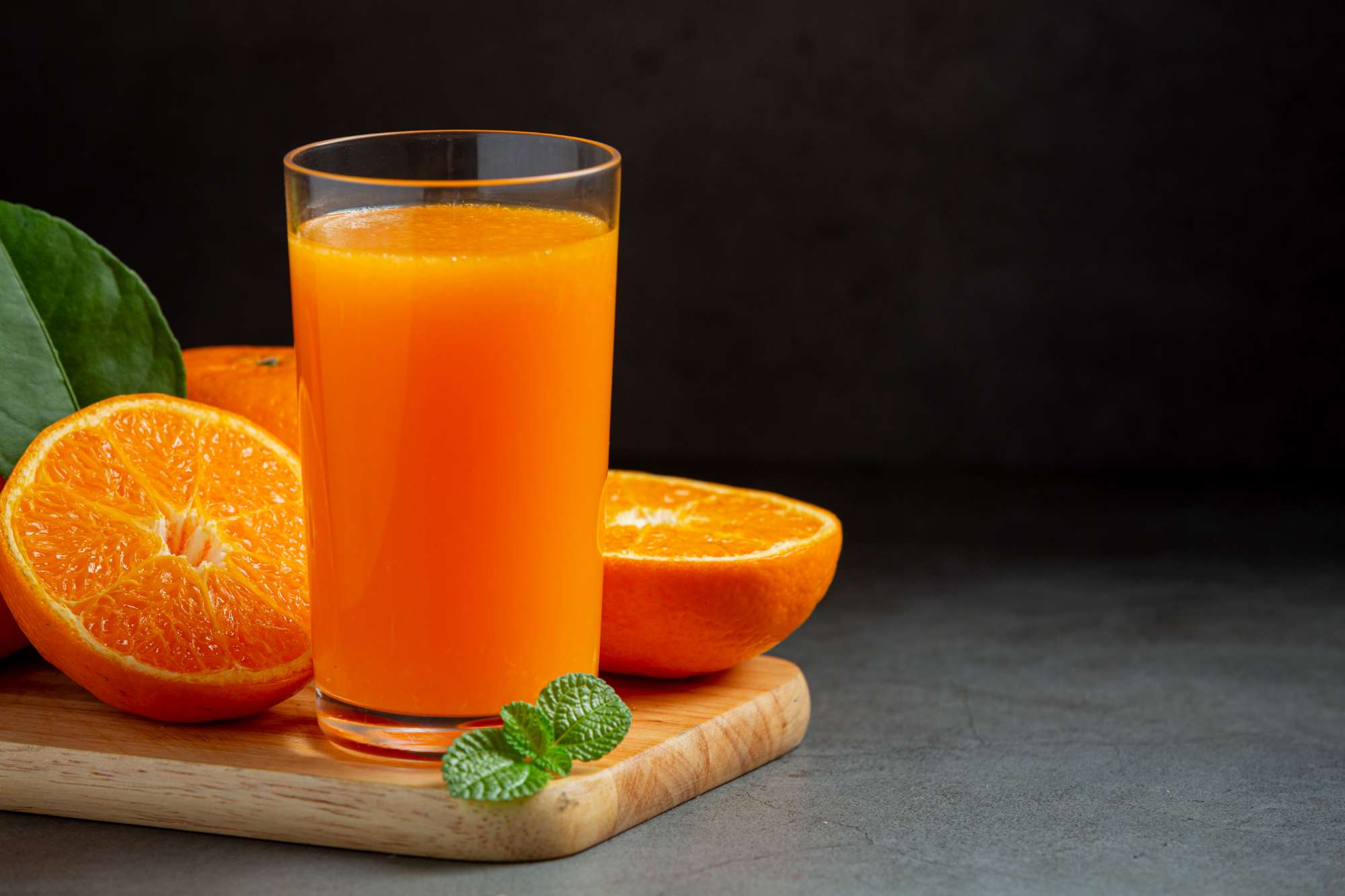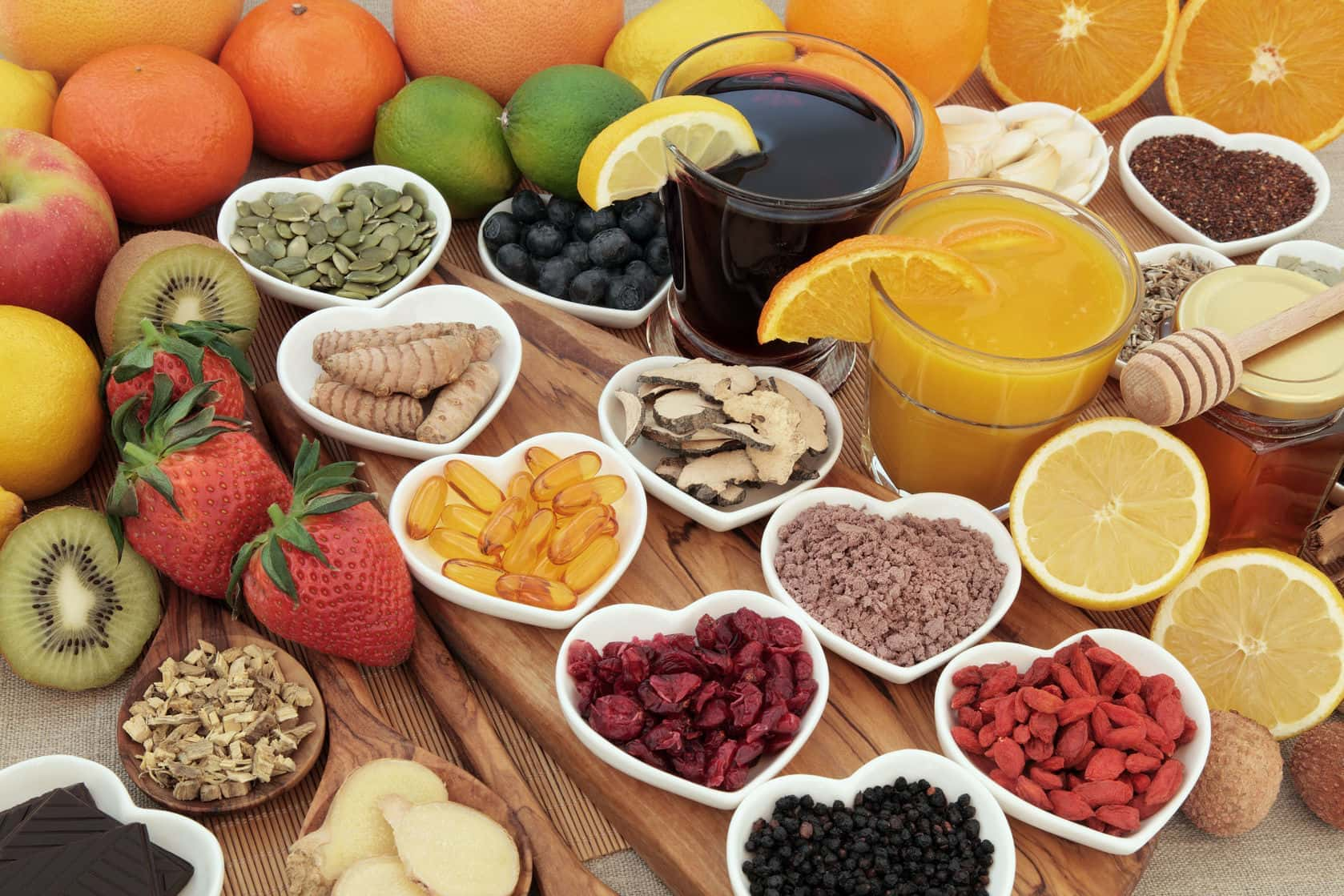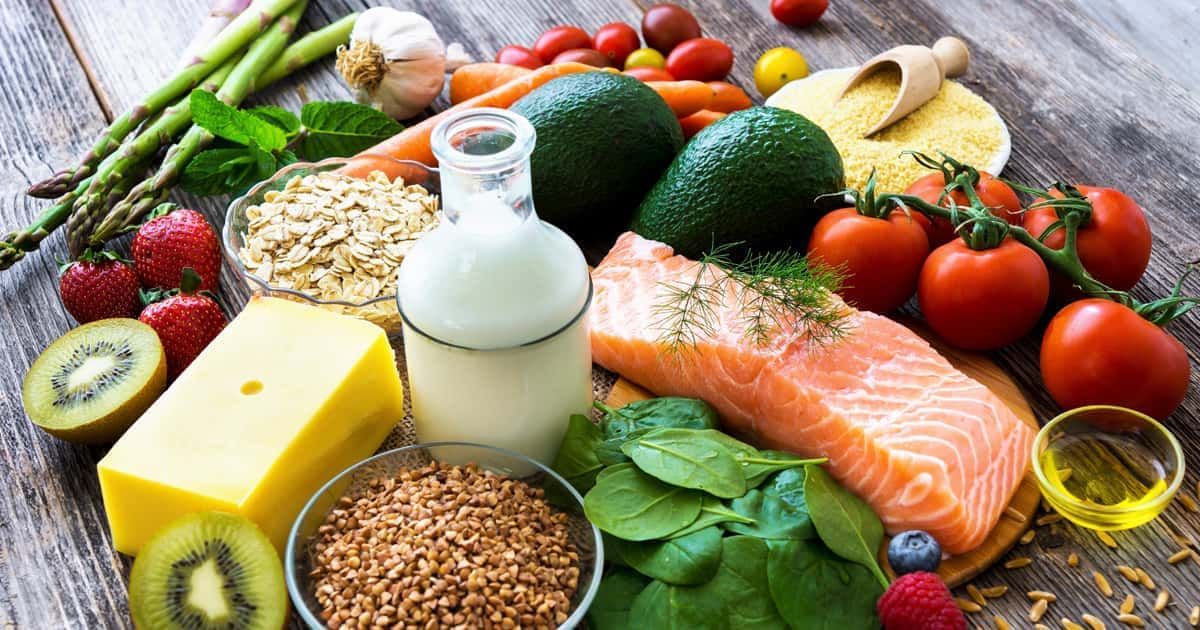Vitamins and Its role on our health
Vitamins and Its role on our health
Vitamins are organic compounds that people need in small quantities. Most vitamins need to come from food because the body either does not produce them or produces very little. Different vitamins play different roles in the body, and a person requires a different amount of each vitamin to stay healthy.
A vitamin is an organic molecule that is an essential micronutrient which an organism needs in small quantities for the proper functioning of its metabolism. Essential nutrients cannot be synthesized in the organism, either at all or not in sufficient quantities, and therefore must be obtained through the diet.
Our body are able to synthesize certain vitamins to some extent. Specifically, vitamin D is not available in large enough quantities in foods. The body synthesizes vitamins when exposed to sunlight, and this is the best source of vitamin D. Alternatively, niacin can be synthesized from the amino acid tryptophan. And vitamin K, biotin are also synthesized by bacteria living in the intestines. In general, our body depend on the diets for vitamins. The amount of vitamins in food and the amount needed daily are measured in milligrams and micrograms.
Unlike the macronutrients, vitamins do not serve as an energy source for the body or provide raw materials for tissue building. Rather, they assist in energy-yielding reactions and facilitate metabolic and physiologic processes throughout the body.


Vitamin nomenclature is somewhat complex, with chemical names gradually replacing the original letter designations created in the era of vitamin discovery during the first half of the 20th century. Nomenclature is further complicated by the recognition that vitamins are parts of families with, in some cases, multiple active forms. Some vitamins are found in foods in precursor forms that must be activated in the body before they can properly fulfill their function. For example, beta(β)-carotene, found in plants, is converted to vitamin A in the body.
The 13 vitamins are divided into two groups depending on their solubility.
Fat-soluble vitamins
The four fat-soluble vitamins (soluble in nonpolar solvents) are vitamins A, D, E, and K. Although now known to behave as a hormone, the activated form of vitamin D, vitamin D hormone (calcitriol), is still grouped with the vitamins as well. The body stores fat-soluble vitamins in fatty tissue and the liver, and reserves of these vitamins can stay in the body for days and sometimes months. Dietary fats help the body absorb fat-soluble vitamins through the intestinal tract.
Water-soluble vitamins
The nine water-soluble vitamins (soluble in polar solvents) are vitamin C and the eight B-complex vitamins: thiamin, riboflavin, niacin, vitamin B6, folic acid, vitamin B12, pantothenic acid, and biotin. Choline is a vitamin-like dietary component that is clearly required for normal metabolism but that can be synthesized by the body. Although choline may be necessary in the diet of premature infants and possibly of those with certain medical conditions, it has not been established as essential in the human diet throughout life. Water-soluble vitamins do not stay in the body for long and cannot be stored. They leave the body via the urine. Because of this, people need a more regular supply of water-soluble vitamins than fat-soluble ones.Vitamin C and all the B vitamins are water-soluble.

Different vitamins are more or less susceptible to destruction by environmental conditions and chemical agents. For example, thiamin is especially vulnerable to prolonged heating, riboflavin to ultraviolet or fluorescent light, and vitamin C to oxidation (as when a piece of fruit is cut open and the vitamin is exposed to air). In general, water-soluble vitamins are more easily destroyed during cooking than are fat-soluble vitamins.
The solubility of a vitamin influences the way it is absorbed, transported, stored, and excreted by the body as well as where it is found in foods. With the exception of vitamin B12, which is supplied by only foods of animal origin, the water-soluble vitamins are synthesized by plants and found in both plant and animal foods. Strict vegetarians (vegans), who eat no foods of animal origin, are therefore at risk of vitamin B12 deficiency. Fat-soluble vitamins, on the other hand, are found in association with fats and oils in foods and in the body and typically require protein carriers for transport through the water-filled compartments of the body.
Water-soluble vitamins are not appreciably stored in the body (except for vitamin B12) and thus must be consumed regularly in the diet. If taken in excess they are readily excreted in the urine, although there is potential toxicity even with water-soluble vitamins; especially noteworthy in this regard is vitamin B6. Because fat-soluble vitamins are stored in the liver and fatty tissue, they do not necessarily have to be taken in daily, so long as average intakes over time—weeks, months, or even years—meet the body’s needs. However, the fact that these vitamins can be stored increases the possibility of toxicity if very large doses are taken. This is particularly of concern with vitamins A and D, which can be toxic if taken in excess. Under certain circumstances, pharmacological (“megadose”) levels of some vitamins—many times higher than the amount typically found in food—have accepted medical uses. Niacin, for example, is used to lower blood cholesterol levels; vitamin D is used to treat psoriasis; and pharmacological derivatives of vitamin A are used to treat acne and other skin conditions as well as to diminish skin wrinkling. However, consumption of vitamins or other dietary supplements in amounts significantly in excess of recommended levels is not advised without medical supervision.
Vitamins synthesized in the laboratory are the same molecules as those extracted from food, and they cannot be distinguished by the body. However, various forms of a vitamin are not necessarily equivalent. In the particular case of vitamin E, supplements labeled d-α-tocopherol (or “natural”) generally contain more vitamin E activity than those labeled dl-α-tocopherol. Vitamins in food have a distinct advantage over vitamins in supplement form because they come associated with other substances that may be beneficial, and there is also less potential for toxicity. Nutritional supplements cannot substitute for a healthful diet.

The 13 vitamins and its roleVitamin A. It is fat-soluble.
Chemical names: retinol, retinal, and “the four carotenoids,” including beta carotene.
Function: It is essential for eye health.
Deficiency: This may cause night blindness and keratomalacia, which causes the clear front layer of the eye to grow dry and cloudy.
Good sources: These include liver, cod liver oil, carrots, broccoli, sweet potatoes, butter, kale, spinach, pumpkins, collard greens, some cheeses, eggs, apricots, cantaloupe melon, and milk.

Vitamin B1. It is water-soluble.
Chemical name: thiamine.
Function: It is essential for producing various enzymes that help break down blood sugar.
Deficiency: This may cause beriberi and Wernicke-Korsakoff syndrome.
Good sources: These include yeast, pork, cereal grains, sunflower seeds, brown rice, whole grain rye, asparagus, kale, cauliflower, potatoes, oranges, liver, and eggs.
Vitamin B2. It is water-soluble.
Chemical name: riboflavin.
Function: It is essential for the growth and development of body cells and helps metabolize food.
Deficiency: Symptoms include inflammation of the lips and fissures in the mouth.
Good sources: These include asparagus, bananas, persimmons, okra, chard, cottage cheese, milk, yogurt, meat, eggs, fish, and green beans.
Vitamin B3. It is water-soluble.
Chemical names: niacin, niacinamide.
Function: The body needs niacin for the cells to grow and work correctly.
Deficiency: Low levels result in a health issue called pellagra, which causes diarrhea, skin changes, and intestinal upset.
Good sources: Examples include chicken, beef, tuna, salmon, milk, eggs, tomatoes, leafy vegetables, broccoli, carrots, nuts and seeds, tofu, and lentils.


Vitamin B5. It is water-soluble.
Chemical name: pantothenic acid.
Function: It is necessary for producing energy and hormones.
Deficiency: Symptoms include paresthesia, or “pins and needles.”
Good sources: These include meats, whole grains, broccoli, avocados, and yogurt.
Vitamin B6. It is water-soluble.
Chemical names: pyridoxine, pyridoxamine, pyridoxal.
Function: It is vital for the formation of red blood cells.
Deficiency: Low levels may lead to anemia and peripheral neuropathy.
Good sources: These include chickpeas, beef liver, bananas, squash, and nuts.
Vitamin B7. It is water-soluble.
Chemical name: biotin.
Function: It enables the body to metabolize proteins, fats, and carbohydrates. It also contributes to keratin, a structural protein in the skin, hair, and nails.
Deficiency: Low levels may cause dermatitis or inflammation of the intestines.
Good sources: These include egg yolk, liver, broccoli, spinach, and cheese.

Vitamin B9. It is water-soluble
Chemical names: folic acid, folinic acid.
Functions: It is essential for making DNA and RNA.
Deficiency: During pregnancy, this can affect the fetus’s nervous system. Doctors recommend folic acid supplements before and during pregnancy.
Good sources: These include leafy vegetables, peas, legumes, liver, some fortified grain products, and sunflower seeds. Also, several fruits have moderate amounts.
Vitamin B12. It is water-soluble
Chemical names: cyanocobalamin, hydroxocobalamin, methylcobalamin.
Function: It is essential for a healthy nervous system.
Deficiency: Low levels may lead to neurological problems and some types of anemia.
Good sources: Examples include fish, shellfish, meat, poultry, eggs, milk and other dairy products, fortified cereals, fortified soy products, and fortified nutritional yeast. Doctors may recommend that people with vegan diets take B12 supplements.
Vitamin C. It is water-soluble.
Chemical name: ascorbic acid.
Function: It contributes to collagen production, wound healing, and bone formation. It also strengthens blood vessels, supports the immune system, helps the body absorb iron, and acts as an antioxidant.
Deficiency: This may result in scurvy, which causes bleeding gums, a loss of teeth, and poor tissue growth and wound healing.
Good sources: These include fruit and vegetables, but cooking destroys vitamin C.

Vitamin D.It is fat-soluble
Chemical names: ergocalciferol, cholecalciferol.
Function: It is necessary for the healthy mineralization of bone.
Deficiency: This may cause rickets and osteomalacia, or softening of the bones.
Good sources: Exposure to UVB rays from the sun or other sources causes the body to produce vitamin D. Fatty fish, eggs, beef liver, and mushrooms also contain the vitamin.
Vitamin E. It is fat-soluble
Chemical names: tocopherol, tocotrienol.
Function: Its antioxidant activity helps prevent oxidative stress, an issue that increases the risk of widespread inflammation and various diseases.
Deficiency: This is rare, but it may cause hemolytic anemia in newborns. This condition destroys blood cells.
Good sources: These include wheat germ, kiwis, almonds, eggs, nuts, leafy greens, and vegetable oils.
Vitamin K. It is fat-soluble
Chemical names: phylloquinone, menaquinone.
Function: It is necessary for blood clotting.
Deficiency: Low levels may cause an unusual susceptibility to bleeding, or bleeding diathesis.
Good sources: These include natto, leafy greens, pumpkins, figs, and parsley.
Compiled and penned by Crocus Media

.jpg)
